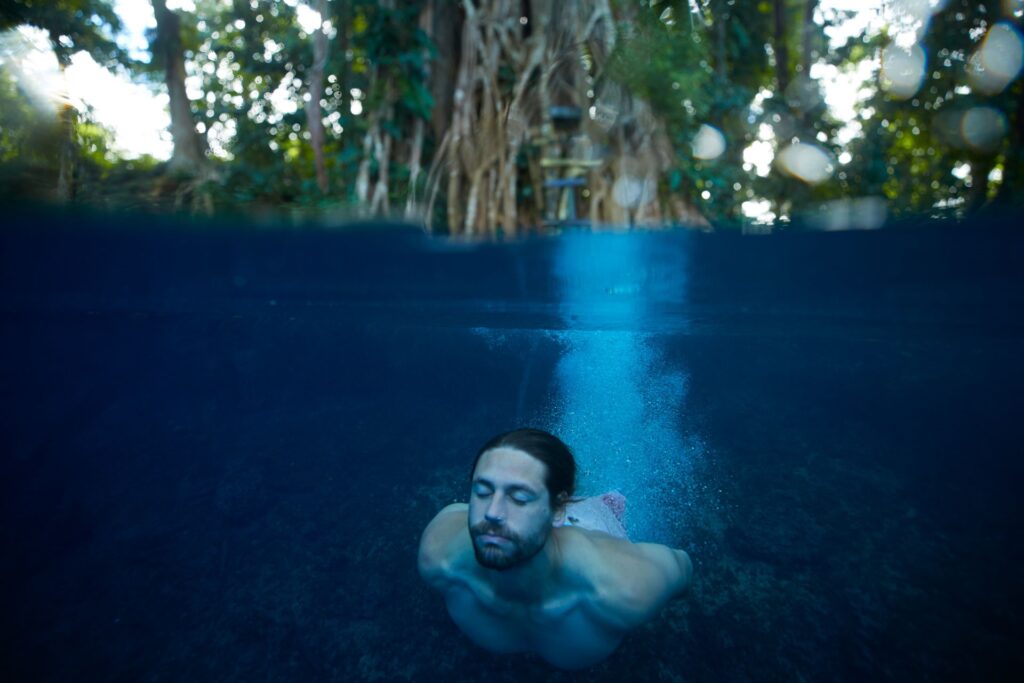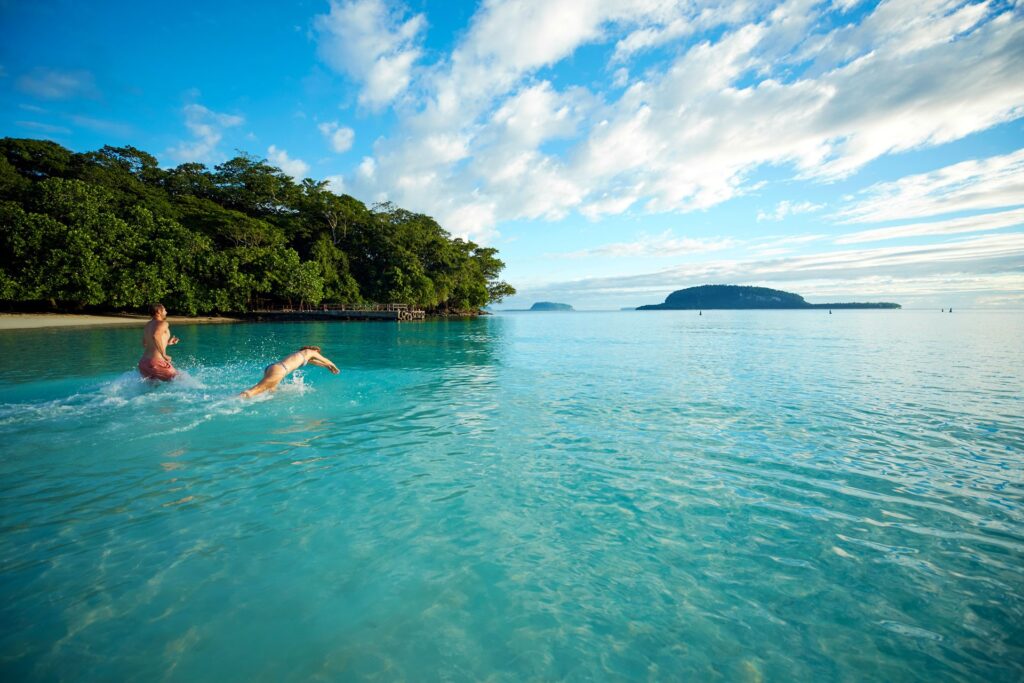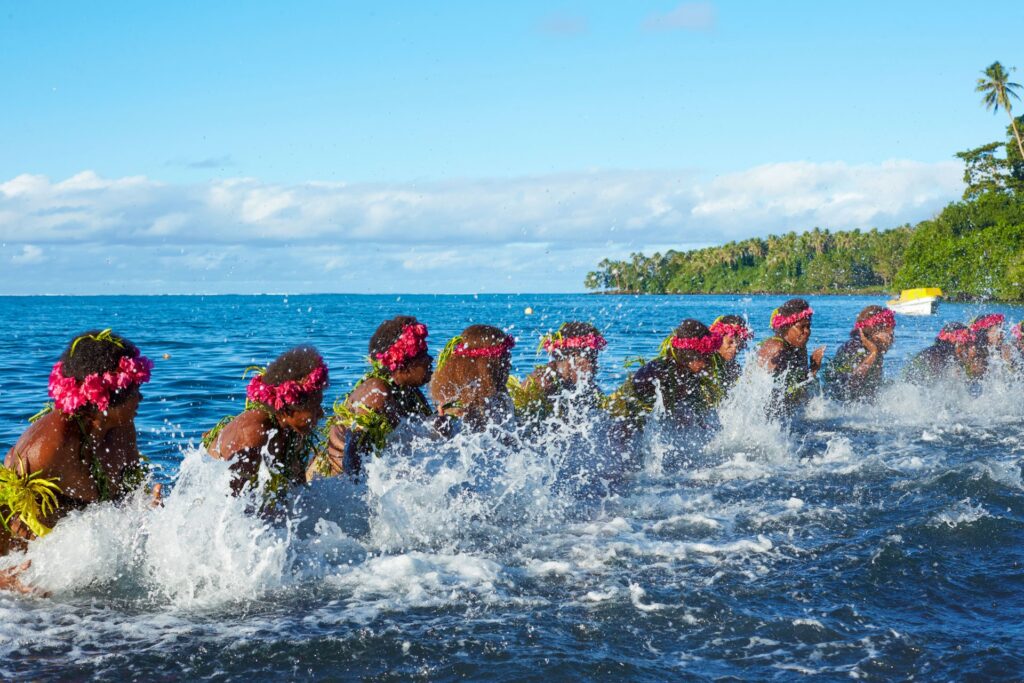Vanuatu Tourism adopts well-being approach for COVID-19 recovery

The Vanuatu Department of Tourism, and Planet Happiness have partnered to measure the happiness and well-being of residents throughout Vanuatu’s six provinces.
As part of a long-term partnership, the Happiness Index survey will engage local people and tourism stakeholders to define actions to strengthen destination well-being, moving beyond solely measuring visitor arrivals and contribution to GDP.
The two organisations signed a Memorandum of Understanding (MOU) on 17th October. The MOU signals their intent to work together to support responsible destination management.
On signing the MOU, Vanuatu’s Director of Tourism, Jerry Spooner, said: “The collaboration with Planet Happiness meets key objectives set out in our 2019-2030 Vanuatu Sustainable Tourism Policy, which is a call to industry, community and Government to transform our tourism industry from dependence to resilience, and to align with our traditional values.

“Guided by our Policy, we aim to promote a tourism industry that is ethical, inclusive, cares for all our people, regenerates and protects our environment, customs and culture. The partnership will enhance the resilience of Vanuatu as a destination in the face of climate change and external threats such as COVID 19,” he added.
With the support of tourism stakeholders and government departments, the Department of Tourism will use the findings of the Happiness Index survey to track tourism’s contribution to Vanuatu’s National Sustainable Development Plan (2016-2030) objectives.
“Annual iterations of the survey will help to measure Vanuatu’s progress in meeting many of the country’s UN Sustainable Development Goals. When integrated with Vanuatu’s Sustainable Tourism Policy, the findings will help build Vanuatu’s position as one of the Pacific’s most sustainable destinations,” said Spooner.
According to the Asian Development Bank, in 2018, Vanuatu received just over 358,000 international visitors with air arrivals rising by 4.7% and cruise ship arrivals almost doubling that rate with growth of 9.2%. Slightly more than half of the air travellers were from Australia, 13% from New Caledonia, and 12% from New Zealand. In the same year travel and tourism accounted for about 45% of the national economy.

Planet Happiness works with tourism organizations around the world to deploy the Happiness Index. The aim is to support local stakeholders to use the survey findings to design and implement measures to improve the quality of life in host destinations.
“Planet Happiness helps destinations move beyond a narrow tourism dollar and GDP agenda,” said Dr Paul Rogers, co-founder and director of Planet Happiness. “Vanuatu’s Department of Tourism is promoting responsible, quality tourism objectives through its Sustainable Tourism Policy. We are therefore delighted to help the DoT and Vanuatu’s tourism stakeholders facilitate happiness and well-being for their citizens.”
The Happiness Index is well established as part of a global initiative to measure well-being in tourism destinations linked to UNESCO World Heritage Sites. The Index has partners in 17 tourism destinations in 13 countries. Indicators include satisfaction with life, access to nature and arts, community engagement, standard of living, life-long learning, and health.
“Planet Happiness will support Vanuatu’s Department of Tourism by deploying what is perhaps the best, most progressive, adaptable, and easy-to-use Happiness Index survey on the planet,” said Laura Musikanski, author, lawyer, and co-founder of Planet Happiness, a project of the Happiness Alliance.


Comments are closed.